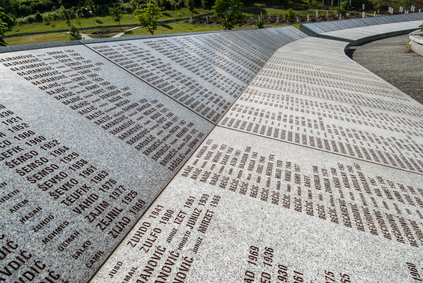Srebrenica: did the UN tell Dutch troops there would be no air support?

New research into the Srebrenica massacre in 1995 is likely to cast fresh doubt on whether the Dutch troops guarding the safe area were given adequate cover by the UN.
More than 8,000 people died after Bosnian Serb troops stormed the enclave on July 13, in what former UN secretary-general later called the worst crime on European soil since the Second World War.
The Dutch government has asked why the Dutchbat force stationed at Srebrenica received no aerial support from its UN allies, which it says left its soldiers outnumbered.
At the heart of the row is the issue of whether Dutchbat or the government knew beforehand that it would not be given support from the air.
A book by former defence minister Joris Voorhoeve has claimed that six weeks before the attack, the United States, France and the United Kingdom decided against aerial support because there was a risk that Mladic would take British or French soldiers hostage.
Voorhoeve said that the Netherlands was kept in the dark by its allies about that decision, but the documentary series Argos later said it had found a document showing that the Dutch government was aware.
Voorhoeve said the UN should have used the threat of air strikes to prevent the massacre. ‘It was clear afterwards that that would have been sensible,’ he said. ‘After the fall of Srebrenica aerial support was used. If that had happened a few weeks earlier it could have saved a lot of lives.’
New research by the national centre for war and genocide studies NIOD is expected to focus once again on what the Dutch government and its peacekeeping troops knew. An earlier report by NIOD, published in 2002, triggered the resignation of prime minister Wim Kok and his cabinet.
Mladic has been on trial in The Hague since 2012, charged with murder and genocide. The main hearings were completed earlier this year and the trial will officially end ofn December 15 with closing arguments. The verdict is expected in November 2017.
Thank you for donating to DutchNews.nl.
We could not provide the Dutch News service, and keep it free of charge, without the generous support of our readers. Your donations allow us to report on issues you tell us matter, and provide you with a summary of the most important Dutch news each day.
Make a donation